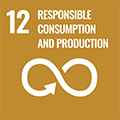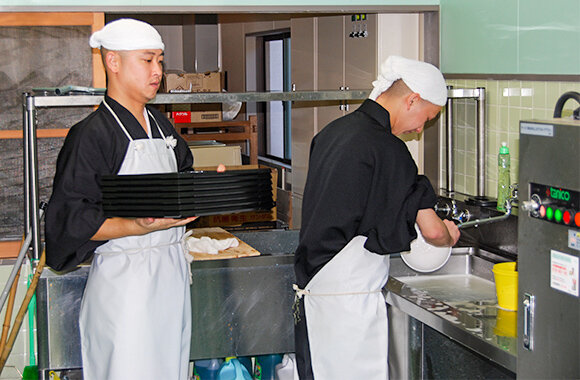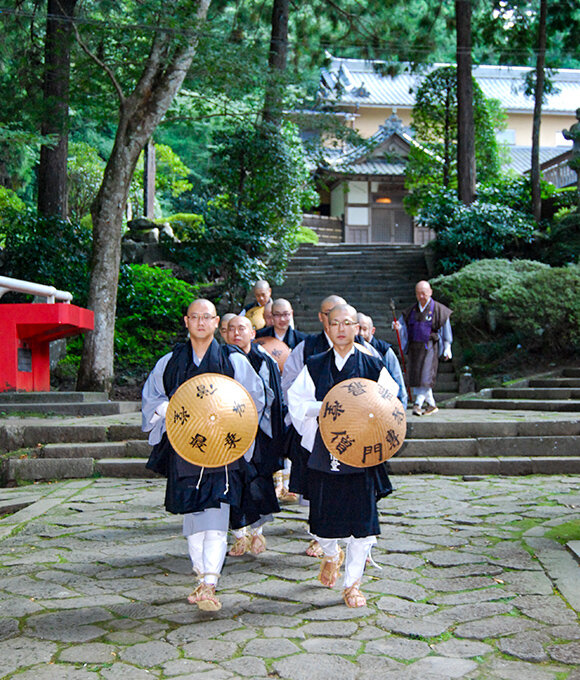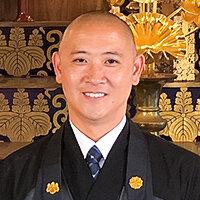Use of Cookies
Our website uses cookies to facilitate and improve your online experience.

Sustainable Development Goal 12 (SDG 12)—"Responsible Consumption and Production,” is one of the 17 Sustainable Development Goals established by the United Nations in 2015. The official wording of SDG 12 is "ensure sustainable consumption and production patterns.” SDG 12 is meant to ensure good use of resources in a way that minimizes its impact on the environment and increase efficiency in the production of goods while still improving the quality of life for all.
SDG 12, along with all the other SDGs, are in place to ensure that businesses, governments, and countries improve its practices and take a greater responsibility in protecting the environment. However, we as individuals must also change the way we live and try to create a better tomorrow for our children and grandchildren.
As the global human population continues to increase, it is crucial that we work together to achieve the goal of SDG 12. Responsible consumption and production apply to practically all areas of our lives. Paper goods, gasoline, electricity, plastic bags and bottles are just a few of the countless things people use—and waste—daily. Food, however, is something ALL human beings must consume to survive. In this modern era, both fresh and packaged foods are readily available—even abundant—but people still do not always consume all that they have. So much unused food is thrown away by consumers or spoils on store shelves. Even in parts of the world where there are food shortages due of drought and poverty, food is wasted or spoils in transportation due to socioeconomic inequities and poor access to food.
“Nobody can accomplish anything significant alone, but someone has to start it.” …Words of the Buddha
From a very young age, my parents taught me to always eat everything I put on my plate. I remember my father inspecting my empty chawan, checking to see if each grain of rice was eaten. Imbued with this teaching, it came as no surprise that when I entered the Soto Zen monastery to train as a novice priest, a great emphasis was put on zero wastage. What did surprise me, though, were the measures taken to achieve such end.
During the time I spent training at Daiyuzan Saijoji, a monastery hidden in the mountains of Kanagawa, I had the opportunity to work for several months in the kitchen under the temple kitchen chief called the Tenzo. I learned from him that during the early days of Buddhism in India, monks wandered from town to town to share the dharma. They did not prepare their own meals, but instead begged for their food from the laity. After Buddhism spread to China, however, the social and economic environment forced monks to provide for themselves in temples. Master Dogen witnessed how proper food preparation had a direct correlation to a thriving temple. So, when zazen meditation and studying the dharma were generally thought to be monks’ rightful pursuits, Master Dogen transformed cooking from a chore into a very structured form of religious training.

As one of the higher-ranking priests at the temple the Tenzo follows the very specific instructions set forth in Master Dogen’s “Tenzo Kyokun.” In this text, Master Dogen stresses that those who cook must focus on developing three things while cooking (三心Sanshin): having a Willing Mind, Caring Mind, and Big Mind.
According to the Tenzo Kyokun, a Tenzo is in a very fortunate position to prepare meals for the monks who are practicing the Buddha’s way. Tasked to cook a nutritious meal for the monks without interfering in their practice year-round requires a willing mind for the work. The Tenzo must be willing to provide for the monks, but to also go the extra step to do so in responsible way—with maximum usage and minimal wastage of the ingredients available to him. While the Tenzo’s willing mind impressed me, I was even more amazed to witness his willing mind at work each and every day. A willing mind takes commitment and dedication.
In the same way, our efforts to be consume responsibly—don’t waste food, don’t overeat, don’t over purchase ingredients—must be ongoing. One day of not wasting alone is unlikely to positively impact the environment. However, adjusting our lifestyle to practice responsible consumption willingly and enthusiastically will make a difference over time.
The Tenzo must also have a caring mind. A caring mind is like that of parents, having an unconditional love for their children. The Tenzo must not only think of protecting the lives of monks of the monastery in providing proper nourishment, also care about protecting the resources used in providing for the monks.
The Tenzo at Daiyuzan explained to me that when looking at the ingredients used in food preparation, we are at the very core taking life to nourish our bodies. Understanding our dependence on what feeds us is truly humbling, and therefore we should take great care not to take these ingredients for granted.
In our daily lives, we should also try to develop our caring minds not only for our family and friends, but also for the resources we use and the impact our consumption has on the environment. We must care because we are not only dependent on our resources but interdependent as well.
We must awaken to the big picture. As Dr. James Austin writes in Zen and the Brain, “interbeing is the whole big picture. It relates this page of paper back through the pulp to the logger who fed his family by felling the tree, back through the parents who raised him, on through the wheat fields which nourished them all, to the rain clouds and soil and sunshine that made possible all these and everything else.”
The third thing that the Tenzo at Daiyuzan emphasized to me daily was the importance of having a Big Mind. Master Dogen wrote, “thirdly, the Big Mind does not make any discrimination in doing culinary work. For instance, when carrying something heavy, he must not think it’s heavy. A light thing is not light in his work. The tenzo must always maintain a well balanced attitude to carry out his responsibility.”
“Great events are precipitated by small events.” …Words of the Buddha
As we try to understand SDG 12, it is so easy to be discouraged by the magnitude of the consumption and production crisis mankind faces. We can overcome this obstacle when we understand that Responsible Consumption and Production isn’t too big of a thing that needs to be done by one person, but simply something that we must all do as individuals, as communities, as a nation, and as mankind.
Taking big steps to reduce waste will have a tremendously positive impact on the environment. However, even the small steps we take to go green, recycle, reuse, preserve, conserve, reduce waste and produce responsibly can make a big impact.
“These trees which he plants, and under whose shade he shall never sit, he loves them for themselves, and for the sake of his children and his children’s children…” From a sermon by French theologian Hyacinthe Loyson in Paris in 1866.


Rev. Shuji Komagata is an Assistant Director in Soto Zen Buddhism Hawaii Office.